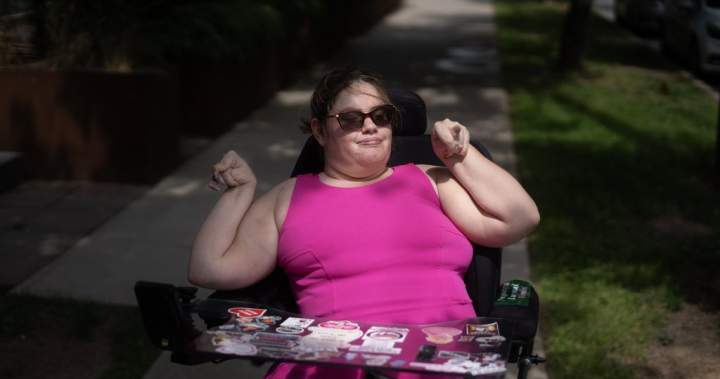An independent monitor says Nova Scotia is making gradual progress in some aspects of its five-year plan to move people with disabilities out of institutions and off wait-lists for community housing.
However, Michael Prince also notes in his second annual report that the government is “heading in the wrong direction” on other portions of its response to a legally binding human rights decision.
In his conclusion to the 55-page report, Prince wrote the province is “gaining traction,” and moving toward meeting the program’s 2028 deadlines on 24 out of the 90 legally required steps, but added it is “not yet advancing consistently and comprehensively toward the outcomes.”
The province’s five-year plan is the result of a 2021 Appeal Court decision that identified systemic discrimination against people with disabilities seeking housing and supports in the community.
A human rights board of inquiry subsequently provided the list of reforms required to address the province’s shortcomings.
Prince, a professor of social policy at the University of Victoria, was appointed in 2023 to provide annual reports on the province’s progress.
Under the provincial plan, 400 people are expected to be moved into new housing and care programs in the communities of their choice by 2028, when all of the institutions would be closed.
Last year, Prince’s report found the province made only “slight progress” — defined as “minimal” and “marginal in result” — on almost half of the 90 legally required steps to improve housing and support of people with disabilities.
The latest report says the number of people living in institutions dropped by 189 — about three-quarters of the original plan’s goal for this year.

Get breaking National news
For news impacting Canada and around the world, sign up for breaking news alerts delivered directly to you when they happen.
In addition, the number of people on a wait list to receive some form of service from the disability supports program has fallen by 293, exceeding the target for this year. In 2022, the list had about 1,800 people on it.
However, Prince also notes that in some areas the figures are going in the opposite direction.
One example is a program called “homeshare” — where community members share their home and provide support to individuals with disabilities who choose to live with them.
The monitor called this “a case of inaction,” in that none of the planned 240 homeshare places planned for by now are yet in place. Prince said in his report this poses a risk to the successful transition of about 400 residents” in large facilities to community housing.
In addition, the number of people with disabilities who are under 65 still living in nursing homes rose, and there was a sharp increase in people placed in emergency, temporary housing arrangements.
“The increase amounted to 52 more young people admitted to long-term care facilities or 12 per cent growth. It is hard to square these results with the province’s assessment of this requirement as complete. This appears to be unnecessary institutionalization, imposing disadvantages on the individuals concerned,” wrote Prince.
Prince also noted that only about a third of new staff — 26 of the 65 expected by Year 2 — slated to provide “intensive” support to help people move were in place. In addition, only about half of the 50 staff slated to provide support in communities by Year 2 were in place.
However, the monitor saw improvements in this area from the last year, and noted that by the spring of 2026, the province anticipates a “targeted recruitment campaign,” over this summer will yield results.
The province has pointed to labour shortages in the health care sector as being among the key reasons for the delays in hiring.
The annual report emphasized the need for the province to heighten a focus on co-operation among various departments and programs to provide support for people moving from facilities into community.
That co-operation will be key in setting up mental health support programs in the community, along with rapid response teams for issues that may arise for people who are living in new forms of housing, says the report.
Prince wrote that he believes the premier’s office and key cabinet ministers should be more involved in ensuring that various, multidisciplinary support teams start being set up.
“Making the remedy a major policy priority requires sustained strategic involvement by key cabinet minister and the premier’s office,” he wrote.
Read the full article here
